2021-2022 Recipients
Equity in Assessment Track
Angela Mitchell – Writing, Rhetoric and Digital Studies
Project Title: Equitable Assessment Practices for First-Year Assignments

Project Description: Institutional data indicate underrepresented minorities (URMs) received Ds and Fs
at a higher rate than other students in First-Year Writing courses. We seek knowledge with what
different races/ethnicities struggle or succeed on the program’s writing assignments, and are interested
in pursuing recent research on aspirational criteria for assessment that is being use to create equity in
writing evaluation. As a gateway course, we believe that this work will serve to increase overall
retention from the first-to second year for underrepresented minorities.
Ellen Wisner – Biological Sciences
Project Title: Creating Self-reflective Assessment Designed to Reduce the Achievement Gap
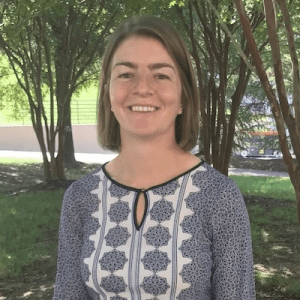
Project Description: I became interested in and developed several reflective assessments aimed at
helping students better see how what they were learning relates to their lives. For this project, I focused
on Ecology, a course required for biology majors. I will develop and incorporate several short reflective
writing assessments into my Ecology class. I will also evaluate whether these assessments help students
succeed. This will be done by dividing the course into two groups where one group completes the
reflective writing assignments and the other group completes a non-reflective writing assignment. In
addition to examining final course grade, I will also survey the students to determine how their
perspective on the course content changes as a result of the reflective writing assignments. This data
will be collected with a pre- and post- course survey where students indicate their perceived importance
and interest in various topics taught in the course.
Monika Sawhney – Public Health Sciences
Project Title: Diverse Populations in Foundations of Global Health

Project Description: Foundations of Global Health is a course open for students across the University.
Diverse groups of students ranging from sophomore through juniors, first-generation, and health care
majors enroll in this course. This is also a high enrollment class. I am seeking ways to diversify
assignments that cater to the learnings and academic growth of a diverse student populations in large
enrollment courses. By participating in this opportunity, I will be able to revisit the available data,
explore possible interventions, and implement appropriate interventions.
Michael Smalenberger – Mathematics & Statistics
Project Title: Normal Random Variables
Project Description: In statistics courses, the Normal Random Variables (NRV) is an important concept
and is built upon throughout the semester but students struggle with the topic. I developed an
Intelligent Tutoring System (ITS) which provides step-by-step guidance as students practice problem-
solving skills for NRV. While results show that perceptions were generally favorable of the ITS, there
were students who struggled with the NRV concept more than students in prior semesters who did not
use ITS. I would like to investigate which students struggle with ITS and why, so that modifications can
be made to the tool.
Gradescope Track
Melanie Harris – Biological Sciences
Project Title: Advancing Student Learning in Microbiology
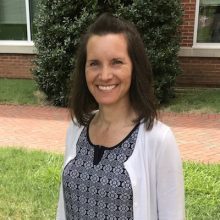
Project Description: Fundamentals of Microbiology is not only an introductory course, it is also a
prerequisite for nursing programs. The time it takes to grade activities or assessments for almost 200
students discourages me from spending the time I need on meaningful feedback. Gradescope is a tool
that will allow for more efficient, consistent, and meaningful feedback. If I am able to provide feedback
this is of quality and less time consuming, this may result in improved grades on end-of-module
assessments. Also, statistical analysis will allow for adjustments to my teaching by showing me where
knowledge is not as strong as it needs to be.
Erik Byker – Reading & Elementary Education
Project Title: Integrating Gradescope to help Prepare Teacher Candidates for EdTPA
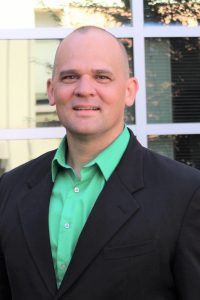
Project Description: EdTPA is a professional portfolio that consists of three comprehensive assessment
tasks and narrative commentaries, which teacher candidates at UNC Charlotte submit to provide clear
evidence about teaching quality. As an instructor for the Instructional Design class, we want to best
prepare our teacher candidates for all the edTPA tasks since it is consequential for their teacher
licensure. The purpose of this assessment grant proposal is to investigate the uses of Gradescope in
helping to assess and give feedback to the teacher candidates on their edTPA practice tasks and to
improve the design and delivery of the Instructional Design class in order to better prepare teacher
candidates for edTPA.
Sarah Birdsong – Mathematics & Statistics
Project Title: Gradescope’s use in a Math Proof’s Course
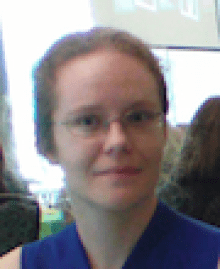
Project Description: Fundamental Concepts of Geometry is an upper-level math course which require
proofs. In part one of the course, instruction is focused on teaching students how to write up their
solutions. Part two of the course requires students to apply their knowledge learning in part one.
Unfortunately, students struggle with how to read and apply the facts learned in part one and I cannot
keep up with giving meaningful feedback to every student; therefore, many of the assignments are
graded based on completion. The use of Gradescope will allow for timely and targeted feedback and
demonstrate the proper use of geometric facts.
Jacob Horger – Chemistry
Project Title: Quality Feedback on Student Assignments
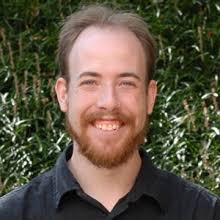
Project Description: The organic chemistry courses have high DFW rates. To be successful, students
need detailed feedback early and frequenly in the course. Due to the time required to leave quality
feedback on student assignments, faculty may rely on assessment methods (like multiple choice exams)
that are limited to testing lower-level skills. I have started using Gradescope in the last year, to collect
and grade handwritten responses on exams. I would like to expand the use of Gradescope in my course
to address some of the deficiencies in my feedback and track item-level performance on assessments.
Evan Wantland – Mathematics & Statistics
Project Title: Gradescope’s Use in a “Critical Progression” Course
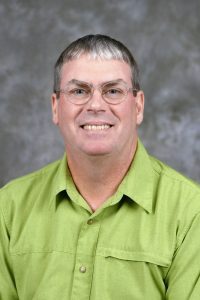
Project Description: Though Matrices and Linear Algebra is required of all Math majors/minors and
many engineering programs, it is dominated by students from a “computing” or “computer science”
related program. The course is deemed a “critical progression” course but has moderately high DFW
rates. It is unfortunately common for me to see the same students making the same mistakes
throughout the semester. Gradescope will help me enhance, streamline, and expedite feedback to
students and gather information about the assessment tools I use.